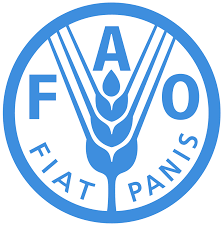
Food and Agriculture Organization
Experience: 3 to 5 Years
Skill Required: Project and Program Management
Apply By: 29-07-2025
The unsustainable management of globally traded commodity crops (cacao, coffee and oil palm), and their expansion into forest areas, are leading to major impacts on globally important biodiversity, the degradation of soil and water resources, the loss of carbon stocks, and the degradation of watersheds that are vital for maintaining water flows to rice production areas. Rice production is itself a source of globally significant environmental impacts, in the form of the contamination of soil and globally- important aquatic ecosystems due to excessive and inappropriate use of agricultural chemicals, and the generation of methane (a potent greenhouse gas) from flooded paddy systems.
A narrow focus on the production of globally-traded cash crops by farmers is environmentally and socially unsustainable – even in the case of perennial crops such as coffee and cacao that have the potential to yield environmental benefits if appropriately managed – because of the volatility of global markets for these crops and their vulnerability to the effects of global climate change. A large number of major global value chain actors have committed to sustainable sourcing of the products that they trade, in order to comply with corporate social and environmental responsibility goals and to satisfy consumer requirements for sustainable production. This presents farmers with a major potential source of market-based incentives for sustainable production, but at present their ability to take advantage of this opportunity is constrained by their disconnection from these “green” value chains and their limited technical capacities to satisfy their requirements in terms of environmental standards, product quality and reliability of supply.
Despite significant policy commitments to sustainability by the Government of Indonesia, capacities, knowledge, tools, regulatory instruments and incentives for putting these into practice are still inadequately developed, and the agricultural and environmental sectors continue to be highly compartmentalized, lacking the integrated vision that is required if social and economic development and landscape management are to be sustainable.
With the funding support from the Global Environmental Faculty (GEF), the Government of Indonesia, led by the Coordinating Ministry for Food Affairs (CMFA) and with technical support from UNDP and FAO is preparing the full-size project implementation entitled “Strengthening sustainability in commodity and food systems, land restoration and land use governance through integrated landscape management for multiple benefits in Indonesia (FOLUR)”. The project aimed to ensure sustainable value chains of palm oil, coffee, and cocoa via application of a comprehensive land use approach linking biodiversity conservation, restoration, and production at scale.
The Project Assistant will work under the overall administrative suvervision of the FAO Representative in Indonesia, and the direct supervision of the Assistant FAO Representative (Programme).
Agriculture, Forestry, Rural Livelihoods, Development Management, Integrated Landscape Management, Project Management. The Project Assistant (PA) will support National Project Manager (NPM) in particular and Project Management Unit (PMU) in general to consistently implement UNDP, FAO, and/or project’s Standard Operating Procedure (SOP) as well as the Government of Indonesia’s rules and regulations.
Responsibilities :
The planning aspects:
The reporting aspects:
Project implementation aspects:
Monitoring and evaluation aspects:
Knowledge management aspects:
Minimum Requirements :
Technical/Functional Skills :
Source: https://jobs.fao.org/careersection/fao_external/jobdetail.ftl?job=2501716